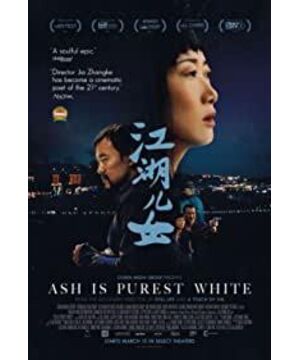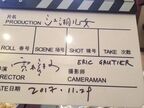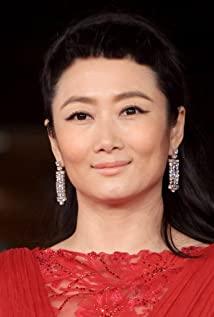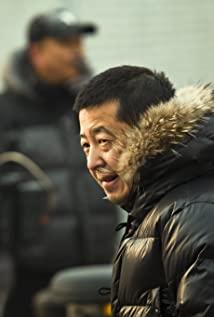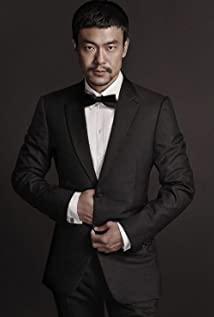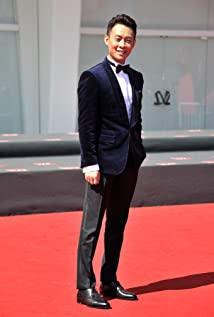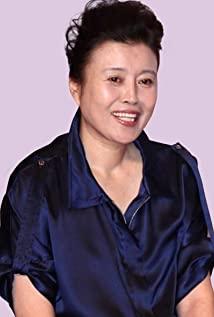No matter how long his children are, the hero is short-hearted
As long as I have you by my side
Text | Le Yili
This time, Jia Zhangke still did not disappoint the audience.
On the basis of the previous work "Where Has Time Gone", the new work "Children of Jianghu" deepens the exploration of the years of life.
The story starts from Datong in Jia Zhangke's youth: in the collapsed state-owned coal mine, the young Guo Bin took a group of children and established his own rivers and lakes - they worshipped brothers, danced halls, played mahjong, played horses, and also paid for entertainment. disaster.
The beautiful and shrewd Qiaoqiao is Guo Bin's lover for many years. In a fight, Qiaoqiao openly shot the thugs in order to save Guo Bin. After being arrested, he took responsibility for Guo Bin and served five years in prison.
During this period, Guo Bin and others successively commuted their sentences and were released from prison, but only Qiaoqiao silently survived until they were released.
At this time, the market economy was in full swing. Guo Bin and his former brother went south to do business. After being released from prison, they embarked on a journey to find people alone.
On the way to find people, Qiaoqiao was stolen by pseudo-Christians and could only survive in the reservoir area by cheating. When she finally found the man's company, she found that Guo Bin had a new love beside him, and he himself did not dare to show up, leaving the two women to face off.
Qiaoqiao insisted on seeing Guo Bin himself, and Shi Ji forced Guo Bin to show up by reporting the case. In the end, the man remained silent, and it was the woman who broke up.
Surrounded by the ideal, Qiao Qiao's youth withered in the cage, but the original love could not be regained. On her trip to Xinjiang, she experienced an absurd UFO incident and returned to her hometown to open a chess and card room.
Years later, Guo Bin, who had drunk too much alcohol, was paralyzed with both legs and was sent back to Datong without anyone to take care of him.
Here, Qiaoqiao took on the responsibility of taking care of him without hesitation, seeking medical treatment for him, and Guo Bin was gradually able to walk on crutches.
After moving freely, Guo Bin left without saying goodbye again, while Qiaoqiao could only keep the original loyalty in the rivers and lakes, and spend the days in fear with a gesture of longing.
In "Children of Jianghu", Jia Zhangke inserted plots or elements from old works such as "Xiao Wu", "The Good Man in Three Gorges", "Ren Xiaoyao", "Old Man in Mountains and Rivers", etc., and made a panoramic account of the protagonist's past and present life.
His camera, however, is still aimed at all kinds of little people , paying attention to their current living conditions, revealing the original meaning of rivers and lakes, that is, the wandering of people .
Among the children, such as Guo Bin Qiaoqiao, are just the dull faces of all living beings who have been hastily erased their sorrows and joys, and they will eventually fall into the powerlessness of fate.
As a director who majored in literature, Jia Zhangke's film theme is clearly reflected in the title. "Children of Jianghu" is about Jianghu and children .
" Jianghu " is the object of Jia Zhangke's constant attention. From the early family, mountain villages, factories and mines, to the later society, country, and world, as long as there are people, there are rivers and lakes.
Therefore, the rivers and lakes in the film are actually places that have changed with the times, including the mine where the protagonist Guo Bin worked when he was a teenager, the urban area of Datong, and large and small entertainment venues.
The changing times have disintegrated young people's rivers and lakes: their backers died, their brothers were coaxed away, and they were impoverished. Guo Bin and Qiaoqiao were also imprisoned one after another.
After being released from prison, the world has changed. Everyone is chasing the dividends of the market economy. Guo Bin also went to the mall to fight the world. own legs.
After the old Guo Bin returned to the county seat, Qiaoqiao, who had been abandoned by him, took in and treated him regardless of his previous suspicions.
Once he gained the ability to act, he quietly left to pursue his unfinished "Jianghu", but Qiao Qiao stayed where he was, silently dedicating his life to this man without a name.
Such an ending implies the director's gender awareness, which is another theme of the film: " children ".
Jia Zhangke mobilized a lot of plot and film language in the film to explain the differences between men and women: men's rivers and lakes are loyalty, blood, impulsiveness, fame and fortune, and the sense of achievement of all men is defined by these secular standards.
But under the seemingly tough exterior, men are jealous, cowardly and powerless when facing their inner feelings and self-failure alone.
On the other hand, the heroine Qiao Qiao, although she is a woman, shows decisiveness and foresight at a critical moment in her life:
She dares to draw a gun to save people in times of crisis, take responsibility for her lover in front of the law, dare to let the man who failed her show up to confront her, and dare to use her actions to support the burden of life after her ideal is disillusioned. And help her boyfriend's lost righteous brother earlier.
Compared with men, women's loyalty is more tenacious and long, just like the mineral water bottle in Qiaoqiao's hand that appears repeatedly in the film, soft and invisible, but indomitable. Women's rivers and lakes mostly fall on their men: love what they love, dream what they dream, desperately defend their rivers and lakes, and sacrifice themselves to settle everything.
In the second half of life, the blood of men is gone, and the tolerance and long-term affection of women make them the home court of Jianghu .
From a structural point of view, the narrative rhythm of the film coincides with the curve of life :
In the first half of the story, they were swordsmen and swordsmen, fighting singing and gambling, longing for feasting and feasting, and eager to change the world. Then, under the deterrence of reality and the strong, people gradually smoothed the edges and corners, recognized their own limitations, and returned to the ordinary and the ordinary.
Jia Zhangke said in his letter to Zhang Yibai that for modern people, affection has become an ancient meaning .
Therefore, he hopes that in the film, every modern person running at high speed should retain this ancient meaning: bury it in the heart when you are young, and carry it with you later, through time.
In the film, there is a line between the explorer played by Xu Zheng and Zhao Tao who went to Xinjiang to seek his dreams: We are all prisoners of the universe .
This is a typical Jia Zhangke-style dialogue, just like "Everyone can only accompany you for one ride" in "Old Man in Mountains and Rivers", like a slogan, which extracts the spiritual theme of the film.
Jia Zhangke uses a literary approach to describe the years of life, thinking about who we should be with and what attitude we should use to spend our life under the strangulation of time.
But in fact, all life seems to be in the dark, and the ending has been written. The fatalistic writing is the truest and most beautiful sadness and emotion in this film .
The movie is Jia Zhangke's half-life research and brewing beeswax.
"Children of Jianghu" uses the most soft and narrow knife to dissect the coldest and hardest era.
Life is like a play, there are times to sing, and times to exit. Those rout fates will, at the last moment, lift the lamps out of the water in the dark night.
View more about Ash Is Purest White reviews


